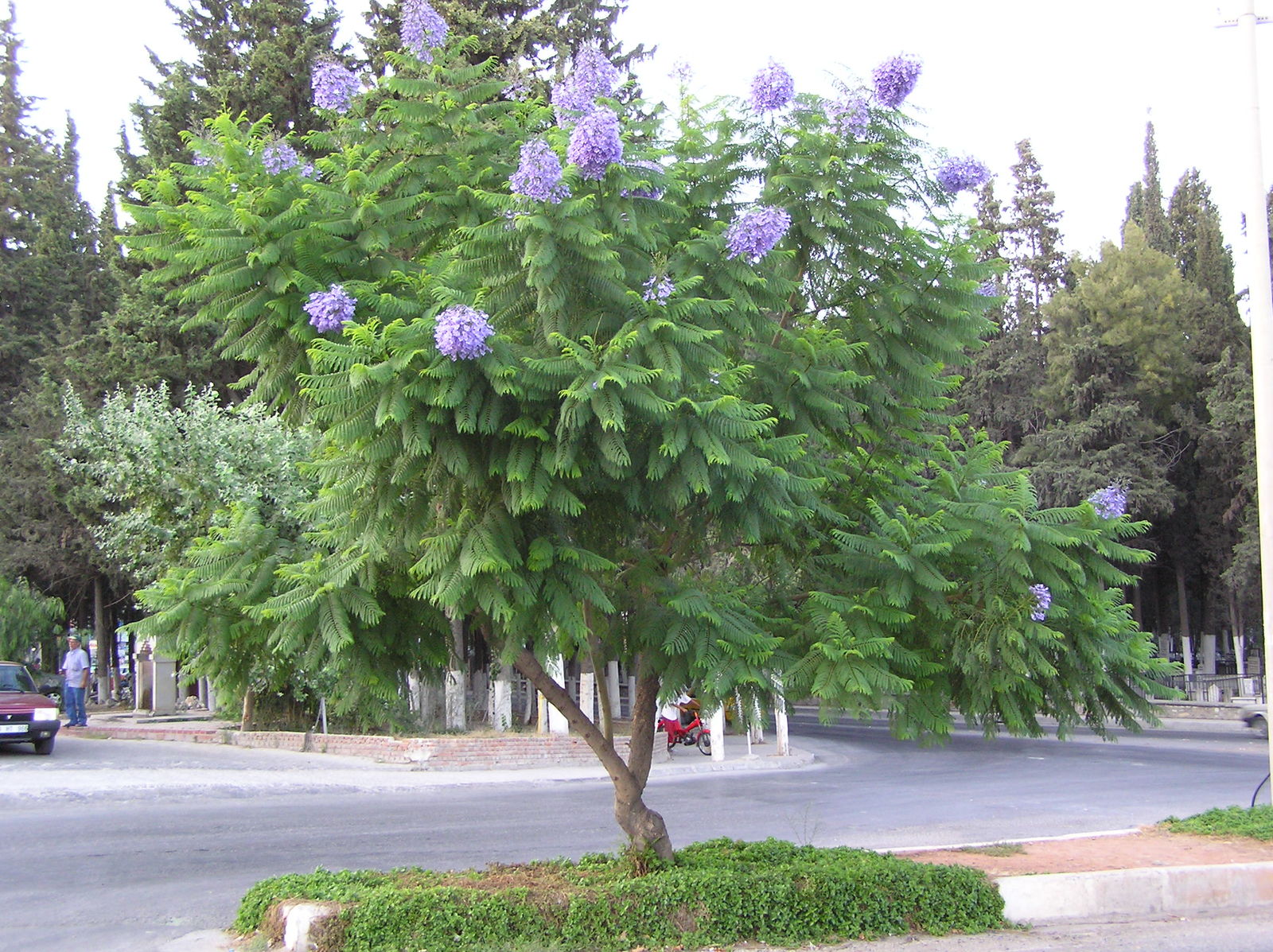The Jacaranda Tree: A Burst of Purple Magic
Have you ever stumbled upon a street bathed in a breathtaking haze of purple? Chances are, you were witnessing the enchanting beauty of a jacaranda tree in full bloom. These stunning trees, known for their vibrant lavender-blue blossoms, transform ordinary landscapes into scenes of breathtaking wonder. But a jacaranda tree is more than just a pretty face. Let's delve into the fascinating world of these remarkable trees.
So, what exactly is a jacaranda tree? These deciduous trees, belonging to the Bignoniaceae family, are native to tropical and subtropical regions of Central and South America, particularly Brazil, Argentina, and Bolivia. They are characterized by their fern-like foliage and their spectacular display of trumpet-shaped flowers. The word "jacaranda" itself is thought to be derived from a South American native language, possibly meaning "fragrant." While many varieties exist, the blue jacaranda (Jacaranda mimosifolia) is perhaps the most widely recognized and admired.
The history of jacaranda trees is rich with folklore and cultural significance. In some cultures, the blooming of the jacaranda is associated with good luck and new beginnings. In others, it's seen as a symbol of wisdom and rebirth. Their introduction to various parts of the world, like Australia and South Africa, has led to their adoption into local traditions and celebrations.
The importance of jacaranda trees extends beyond their aesthetic value. They contribute to urban ecosystems by providing shade, absorbing carbon dioxide, and supporting pollinators like bees and butterflies. However, their rapid growth and extensive root systems can sometimes pose challenges in urban environments, requiring careful planning and management.
One of the main issues concerning jacaranda trees is their potential invasiveness in certain regions. In areas where they're not native, they can outcompete indigenous species and disrupt the local ecological balance. Understanding the growth habits and potential impact of jacaranda trees is crucial for responsible planting and management.
The benefits of jacaranda trees are numerous. Their beautiful blossoms create a vibrant spectacle, enhancing the aesthetic appeal of urban landscapes and bringing joy to those who encounter them. They offer shade, reducing the urban heat island effect, and contribute to cleaner air by absorbing pollutants. Additionally, their wood is valued in some regions for crafting furniture and musical instruments.
If you're considering planting a jacaranda tree, ensure you have ample space and a climate suitable for their growth. They thrive in warm, sunny locations with well-drained soil. Regular watering, especially during dry periods, is essential for young trees.
Advantages and Disadvantages of Jacaranda Trees
| Advantages | Disadvantages |
|---|---|
| Beautiful blossoms | Potential invasiveness |
| Shade and cooling | Extensive root systems |
| Air purification | Can create litter |
Frequently Asked Questions:
1. What is a jacaranda tree? A deciduous tree known for its vibrant purple flowers.
2. Where do jacaranda trees come from? Tropical and subtropical regions of Central and South America.
3. When do jacaranda trees bloom? Typically in spring and early summer.
4. Are jacaranda trees invasive? They can be in some regions.
5. How do I care for a jacaranda tree? Plant in a sunny location with well-drained soil and water regularly.
6. What are the benefits of jacaranda trees? Aesthetic beauty, shade, air purification.
7. Can I grow a jacaranda tree in a pot? Young trees can be grown in pots, but they eventually require a large space.
8. What are some challenges in growing jacaranda trees? Potential for invasiveness and extensive root systems.
In conclusion, the jacaranda tree, with its captivating purple blossoms, offers a unique blend of beauty and ecological significance. From its cultural importance to its contribution to urban ecosystems, the jacaranda tree holds a special place in many parts of the world. While it's essential to be mindful of potential challenges like invasiveness, the overall benefits of this stunning tree make it a worthwhile addition to landscapes where it can thrive. So, next time you encounter a jacaranda tree in bloom, take a moment to appreciate its breathtaking beauty and the vital role it plays in the natural world. Consider planting one in your yard if your climate permits, and enjoy the magical transformation it brings.
Conquer apa 7 master font size and spacing like a pro
Unlocking space your guide to small bathroom inspiration
Unlocking bedroom bliss the ultimate guide to fine iron beds with storage









/Jacarandatrees-GettyImages-618950500-2f9f5b4790c74b2099159f029802aa1f.jpg)




